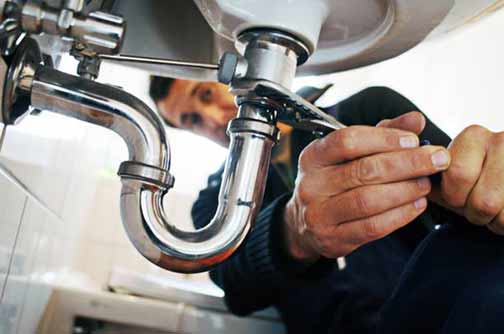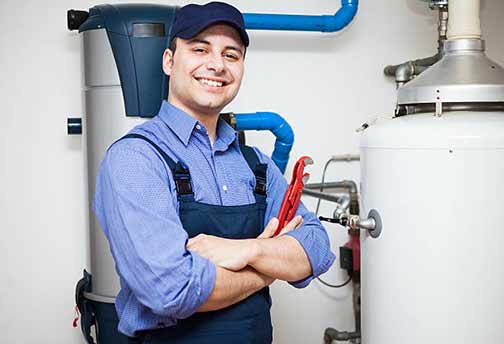
As a future homeowner, one of the most crucial aspects to consider is the plumbing system of your prospective residence. Plumbing is often overlooked during the excitement of purchasing a new home, but understanding it can save you from potential headaches down the road. A well-maintained plumbing system ensures the smooth operation of water flow, waste management, and heating systems, contributing significantly to your comfort and peace of mind. Knowing the layout of your plumbing system, including the location of pipes, valves, and fixtures, is essential. This knowledge not only helps in routine maintenance but also prepares you for any unforeseen issues that may arise.
Identifying Common Plumbing Issues Before Buying
Before finalizing your home purchase, it is essential to identify any existing plumbing issues. Common problems include leaks, outdated pipes, and inefficient fixtures. Leaks can lead to costly repairs and water damage, while outdated pipes may require replacement to meet modern standards. Inefficient fixtures can increase water bills and reduce the overall efficiency of your home’s water system. A thorough inspection by a professional plumber can help uncover these hidden issues. Look for signs of water damage, such as stains on ceilings or walls, which might indicate leaks. Check the water pressure in showers and faucets, as low pressure could suggest underlying problems with the plumbing.
Choosing the Right Plumbing Materials for Longevity
The choice of plumbing materials is pivotal for the durability and longevity of your plumbing system. Copper, PVC, and PEX are popular choices, each with its advantages. Copper is known for its durability and resistance to corrosion, making it ideal for long-term use. PVC is cost-effective and easy to install, while PEX offers flexibility and resistance to freezing temperatures. Understanding the benefits of each material can guide you in making informed decisions about any necessary plumbing upgrades or repairs. Consider the climate in your area when choosing materials; for instance, PEX might be preferable in colder regions due to its ability to withstand freezing temperatures without bursting.
Investing in Energy-Efficient Fixtures
Energy-efficient fixtures are not only environmentally friendly but also cost-effective in the long run. Low-flow toilets, showerheads, and faucets reduce water usage without compromising performance. These fixtures can significantly lower your water bills and contribute to sustainable living. As a future homeowner, investing in such fixtures is a wise decision that aligns with modern eco-conscious living standards. Additionally, consider installing water-saving appliances, such as dishwashers and washing machines, which use less water and energy. These investments not only benefit the environment but also enhance the overall value of your home.

Maintaining Your Plumbing System: Regular Checks and Upkeep
Regular maintenance is key to ensuring the longevity and efficiency of your plumbing system. Periodic checks for leaks, corrosion, and blockages can prevent minor issues from escalating into major problems. It is advisable to schedule professional inspections annually to keep your plumbing system in optimal condition. Additionally, understanding basic maintenance tasks like unclogging drains and checking water pressure can empower you to handle minor issues independently. Familiarize yourself with the signs of potential plumbing problems, such as unusual noises in pipes or slow drainage, and address them promptly to avoid costly repairs.
Understanding Plumbing Regulations and Codes
Familiarizing yourself with local plumbing regulations and codes is essential for compliance and safety. These codes dictate the standards for installation, repair, and maintenance of plumbing systems. Ensuring that your plumbing system adheres to these regulations can prevent legal issues and ensure the safety of your home. Speaking with a professional plumber can help you understand and navigate these regulations effectively. Additionally, staying informed about any updates or changes in local codes can help you maintain compliance and avoid potential penalties.
Preparing for Plumbing Emergencies: A Homeowner’s Guide
Despite the best efforts in maintenance, plumbing emergencies can still occur. Being prepared for such situations is crucial for minimizing damage and stress. Keep a list of emergency contacts, including local plumbers and utility companies, readily accessible. Familiarize yourself with the location of shut-off valves and understand how to use them in case of leaks or bursts. Having these preparations in place can make a significant difference in how you handle unexpected plumbing issues. Consider creating an emergency plan that includes steps to take in various scenarios, such as a burst pipe or a severe leak that needs to be detected, to ensure a swift and effective response.
Budgeting for Plumbing Costs: Financial Planning for Homeowners
Budgeting for plumbing costs is an essential aspect of financial planning for homeowners. Understanding the potential costs associated with repairs, upgrades, and maintenance can help you allocate resources effectively. It is advisable to set aside a contingency fund for unexpected plumbing issues, ensuring that you are financially prepared for any eventualities. Consulting with a financial advisor can provide insights into effective budgeting strategies for homeownership. Additionally, consider obtaining a home warranty that covers plumbing repairs, which can provide peace of mind and financial protection against unforeseen expenses.

Leveraging Technology for Smart Plumbing Solutions
Advancements in technology have introduced smart plumbing solutions that enhance efficiency and convenience. Smart water heaters, leak detectors, and automated irrigation systems offer innovative ways to manage your plumbing system. These technologies provide real-time data and alerts, allowing you to monitor and control your water usage effectively. Embracing these solutions can lead to improved efficiency and peace of mind as a homeowner. Explore the integration of smart home systems that connect your plumbing devices to a central hub, enabling remote monitoring and control through your smartphone or tablet.
Building a Relationship with Professional Plumbers
Establishing a relationship with professional plumbers is invaluable for future homeowners. Reliable plumbers can provide expert advice, timely repairs, and regular maintenance services. Building trust with a professional ensures that you have access to skilled assistance whenever needed, contributing to the overall peace of mind in homeownership. Networking within your community or seeking recommendations can help you find reputable plumbers in your area. Consider scheduling regular consultations with your plumber to discuss any concerns or potential improvements to your plumbing system, fostering a proactive approach to maintenance and repair.
Conclusion: Ensuring Plumbing Peace of Mind in Your New Home
Achieving peace of mind as a future homeowner involves understanding and managing your plumbing system effectively. By identifying common issues, choosing the right materials, investing in energy-efficient fixtures, and maintaining regular upkeep, you can ensure the longevity and efficiency of your plumbing system. Being prepared for emergencies, budgeting for costs, leveraging technology, and building relationships with professionals further contribute to a hassle-free homeownership experience. With these expert tips, you can confidently navigate the complexities of plumbing and enjoy the comfort and security of your new home. Embrace the journey of homeownership with the assurance that your plumbing system is well-equipped to support your lifestyle and provide a safe, comfortable environment for years to come.